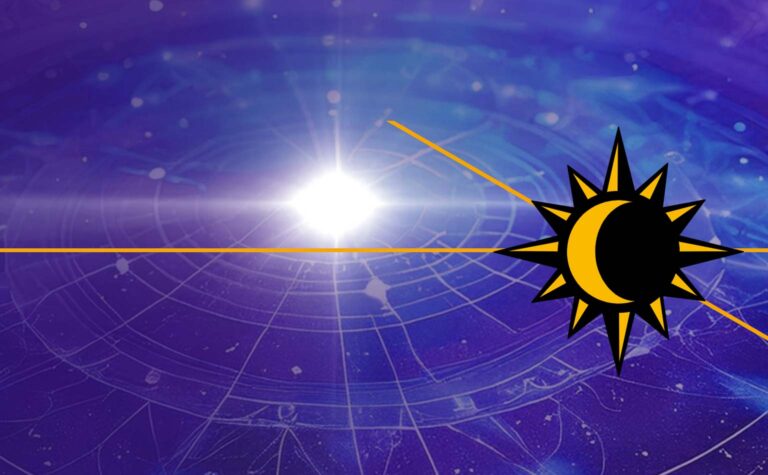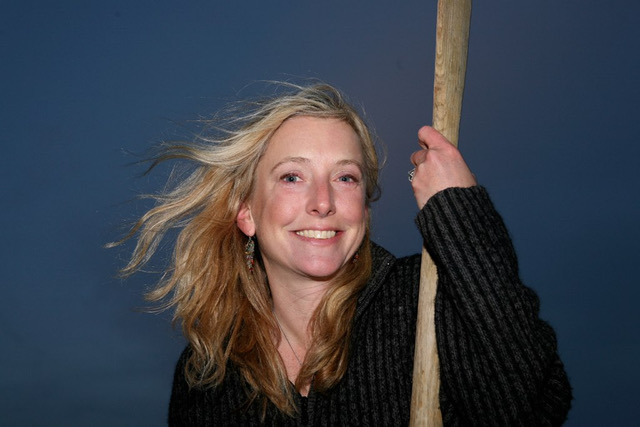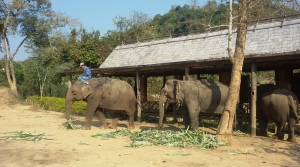Sue in conversation with Henrietta (Henri) Lang, writer, psychotherapist and co-organiser of the Death and Dying Festival in Somerset. Henri is married to a musician. They have three sons and their thirteen-year old daughter has cerebral palsy and learning difficulties.
Henrietta works as a therapist in Wells Somerset, www.henriettalang.com. The Festival of Death and Dying takes place in November www.deathfest.com. Her book ‘All the Mystics and me’ about finding an inner truth that serves life in 21st century will be published in 2020.
Sue: How has your daughter’s disability influenced what it means for you to live consciously for a better world?
Henri: She does incredibly well, but it is often hard for her and it is sometimes unbearably painful to watch her struggle not just with her physical issues but also with her exclusion. But as Rumi says, the battering of challenge softens us up to love and I do believe I am a better person for having been forcibly reconstructed by her arrival in my life. To support her I had to put myself in her shoes and look out on it not in my way but in hers (as best I could). Disability is an incredible lens to look through. It’s like wearing new glasses you have to strain to see through at first, but to see at all I’ve had to examine (and lose) all superficial concepts of what is normal, or good or bearable.
Sue: How has caring for your daughter impacted your view of the way our society relates to disability and the effect this has on us all?
Henri: My daughter’s disability has really lifted the veil for me on how unconscious our society is on the way it organises itself. For so long we collectively submitted to a culture where everything is organised around the needs and desires of white, privileged, straight able-bodied men – a tiny minority. Everyone else has been excluded from the party to everyone’s detriment. We’re just waking up to the fact than any kind of exclusion brings us all down, and radical inclusivity raises us all up. I believe things are beginning to change. For instance, I noticed at Glastonbury Festival last year, there were several ‘political’ headline acts that were highlighting diversities. The message was that you can’t have liberation until everyone is liberated. Until the LGBTQ community is free, racism won’t be over. Until the disabled community is integrated, sexism won’t be over and so on. So, we are waking up to understand all inequalities are one inequality, and all stem from the same root. But, this root – this unconscious root – is also destroying our planet. We need to confront our denial of pain and loss to address how we are devastating the ecosystem that sustains our lives. That’s a painful reality we don’t want to face.
Sue: So, you believe that our denial of pain and loss, in whatever form that takes, directly affects how we treat the planet.
Henri. Yes, I do. But, as I said, I believe things are beginning to change. I was involved in the Extinction Rebellion actions in April 2019. It was incredibly inspiring and one of the best experiences of my life. Colour, sex, disability and origin suddenly became irrelevant and people realised that just by turning up, they mattered – whoever they were. It was an amazing feeling. But I realised I couldn’t remain actively involved and continue to work and care for my daughter and family, so I had to step back. I agonised about this for a while, but it became easier when I realised that any activity that brings us together to heal what we have been denied is a contribution to our collective growth and resilience as a human community.
Sue: Are you saying that in order for us all to live consciously for a better world, we need to change our entire perception of who we are and what we are capable of?
Henri: Definitely. Sometimes I feel so overwhelmed by the scale of our current problems in the world, all I can do is hold space for the pain in myself and in others – that’s the best offering I can make. Physicists have demonstrated that the fluttering of a butterfly’s wings can cause a hurricane. Who’s to say that taking care of my own tiny part of the Universe in this way is not enough? When I allow myself to believe that, I can feel my nervous system put down its armaments. I don’t want to do battle with the world, be frightened of it it or fight myself. I want to feel at peace in myself and with others.
I am also becoming increasingly aware of how we are a living organism which integrates physiologically and psychology with the Earth itself. Being stressed out or taking on too much wears down our body and mind, much the same as burning fossil fuels and driving the earth to satisfy our consumption degrades the ecosystem. I am so aware that every cell in my body has come from the earth. So, I’m trying to focus on staying in tune with my body, understanding that it has an intelligence of its own – just as the earth has its own intelligence and both are connected. We need to learn to trust this natural intelligence. And, of course, being in close relationship with my daughter whose disabled body doesn’t work in the usual ways means I am constantly being made aware of how she acts as a mirror for me.
Sue: Can you explain more about how her disability acts as this mirror.
Henri: I see our society as being governed by a deep unconscious survival-of-the-fittest mentality. Or not so unconscious – our current prime minister famously wrote a piece on how this was the ‘natural’ order of things Well, Boris, it would seem you just failed the intelligence test | Andrew Rawnsley My feeling is this is just a construct of belief that we sleepwalk around in. The result is an anxiety-driven culture that is constantly striving for achievement, which has no space for people with disability – they simply get left behind. But, when my daughter gave me the opportunity to engage with what disability means, it transformed my life. I began to realise everyone has special needs or vulnerabilities to one degree or another. No-one is immune to feeling helpless and lost. Some of us have visible vulnerabilities and others’ are hidden.
Sue: I understand that the UK law on disability states there is no such thing as disability. What is your lived experience of this?
Henri: The UK’s law on disability is very inspiring because it maintains that ‘disability’ does not exist. There are people with impairments, but they are only disabled by their environment and people’s attitudes around them. This law requires all of us to adapt to ensure that people with impairments can take part alongside the rest in all the activities of life.
However, in reality, our unconscious attitudes to disability makes this really hard to realise. My daughter goes to a mainstream private school and her teachers are really supportive, but they do expect her to speak up for her own needs rather than think on her behalf. It’s been really hard for her to keep up and I am increasingly aware that she is only going to thrive in environments where people consciously slow down, become much more mindful of what’s going on, and really care that people like my daughter are included or not. This is why I believe that disability calls us to create a radically different world. A softer, kinder world where everything slows down a bit and everyone pays more attention. Who doesn’t want to live in a world like that?
Sue: When you think about the struggles your daughter is going to encounter in life – with all your understanding of psychology – how to you feel about her future?
Henri: I am nervous for her. But then we are all nervous about the future. It’s very scary to think of thirty years ahead. I will be eighty by then. Will I have survived? Will there be food supplies? Will there be water supplies? As I see it, there’s hell on earth everywhere. But when I look out of the window, I realise I’m not actually living in this hell. It’s beautiful out there. My home is safe; it’s calm and it’s good. So, I believe a good future is possible for my daughter and for my sons. There will be pain and loss, but if I can model for them how to grow from those experiences, I’ll be doing the best for them that I can.
Sue: You mention that there’s ‘hell out there’. Many people are certainly finding modern life increasingly emotionally hard to deal with but we seem to have a strange relationship with pain in our society. Physical pain is fine but admitting to emotional pain is not fine because it says there’s something wrong with you. But, I image that having a disabled child means you live with emotional pain all the time.
Henri: Every single day we have to live with the reality of that she exposes and it is really painful to witness it. I am sounding really brave, but I often cry with frustration. The other day, for example, she told us that she wanted to do the Duke of Edinburgh award. Her teacher said he would arrange for her to join a small group in a room and would find an accessible route for the expedition. We were thrilled to hear this. Then she said, ‘Ah, but I know that some in the group will be really irritated by having to make adjustments for me,’ and I saw all the excitement in her face drain away to be replaced by fear.
She’s been at school with these children for five years. I know quite a few of their parents. But if you think that life is a race and you have bought into the illusion that success is about the survival of the fittest, you can’t afford to ‘waste time’ helping a disabled kid!
The challenge for me is not to sit in the anger and the disappointment. Rather I am learning to allow those feelings to rise up in me, but I work hard not to let them to drive me, because if I do I’m just perpetuating the same disconnected consciousness that created the problem. Instead, I have to dig deep for more compassion and softness, and crucially refocus my faith on the truth that however unfair, cruel or wrong it seems to me, that somehow we are all on healing journey together. For me, this is not just a nice spiritual idea but a daily necessity.
Sue: It sounds as if your daughter has come into your life to throw everything up in the air.
Henri: She certainly has! I had no idea there was anything wrong before she was born. She developed cerebral palsy in the womb. At first, it felt like my world had fallen apart. I couldn’t get past the thought that you can’t have a good life if you can’t live it ‘properly.’ When I look back, I am amazed at how incredibly narrow my lens was. I was so unconscious. Of course, now I realise there are lots of abled bodied people who seem t ‘have it all’ but who are utterly miserable – ‘having it all’ doesn’t make for inner joy. That’s one of the big life-falsehoods that we all find ourselves waking up from at some point.
Sue: Yes, there’s plenty of very unhappy people who, on the surface, look as if they have everything. What else has your daughter shown you about what’s really matters?
Henri: Slow down and pay attention to detail. Caring for her is all in the detail. I have a strong active body and a quick mind, and most tasks come relatively easily to me. I do everything fast! I prefer to work with ideas and strategies and have resisted details and nitty gritty. So, having a disabled daughter has really challenged my way of being. I am constantly having to think, ‘Is that step too high?’ ‘Do we have enough time to get dressed?’ So, she is continually making me to draw back when I assume something is really simple and accept, ‘Okay, that’s really hard for you.’ I have to really think things through.
Actually, this is really helpful when it comes to organising to the festival of death and dying. You want people to feel really safe when confronting their fears. This means using plain English when you write or talk about that’s going on, so you don’t exclude anyone through language. It also means making sure there are tissues available at the events because you want to encourage people to feel it’s okay to cry. Turning a good idea into a matching reality requires attention to detail and rigorous planning! All things I have had to learn painfully as a ‘special’ parent.
Sue: I sense that having a disabled child has profoundly deepened your connection and understanding of what it really means to be on this human journey.
Henri: Yes, it has. I’ve met so many incredible people through my daughter’s disability. I was particularly touched by a young man with cerebral palsy who is entirely wheelchair dependent and whose speech is impaired, yet he runs a business holding workshops for schools and businesses on inclusion. I was so moved by him I burst into tears in the car afterwards. I often see this same emotional reaction from people when they meet my daughter. It inspired me to explore why people become moved by those with disability. So, I spent some time alone, breathing and allowing my feelings to rise up and break like a tide instead of holding them in or displacing them with some kind of activity. While I was doing this, I thought of Khalil Gibran’s book The Prophet. I wondered if ‘he’ were to turn into a ‘she’, and someone was to ask her ‘why disability?’, what would this female prophet say? This is what I concluded:
The woman on the rock
She was there again the next day, the woman on the rock, and the people gathered on the sand to hear what she had to say. One father had brought his son, who was brain damaged and couldn’t speak and sat in his chair.
‘And what of the disabled, Amma?’ they asked, giving her the title meaning ‘One who loves or is wise’. ‘Why are they among us?’
Imagine, said the woman, a world
in which you were free to be yourselves,
where you were seen. Nay, not just seen
but celebrated – not for your strengths or your successes,
but just as you are, in the imperfect perfect
unique unfolding of you
just as God intended.
Imagine a world, she said, where you never feared
your vulnerability, for it was understood
that to share it is an offering,
a chance to build the temple
of our common humanity.
Just as God intended for us.
Imagine a world, she said,
in which there was no shame
if one was sad, or tired, or sick or slow,
or a different shape or shade to others.
And wherever one went,
everyone was invited to the party,
just as God intended for us.
For we are ashamed of our vulnerabilities,
We cast them as shadows to get behind us.
We masquerade as conquerors of sorrow
and helplessness hoping that others will believe our lies
so we may convince ourselves
of our falsehood.
The disabled, beloveds, whether in mind or body,
have set themselves apart from this fakery.
They have chosen to wear their frailties for all to see
so we may learn to see a true wholeness
and wash away the shadow of shame
from the human soul,
just as God intended for us.
We are blessed to have their presence amongst us, dear ones.
For truly, the disabled are like the birdsong before dawn,
heralds of a softer, kinder world,
in which we are all
at the party
that God intended for us.
And the people thanked the woman, and they gathered around the father and his child, one took the wheelchair and the other took the father’s arm, and they walked back to the village smiling and talking of all they had heard.
© Henrietta Lang







